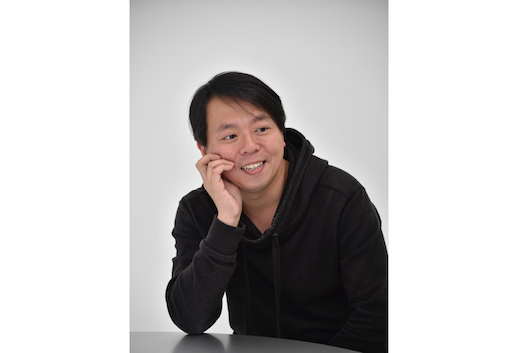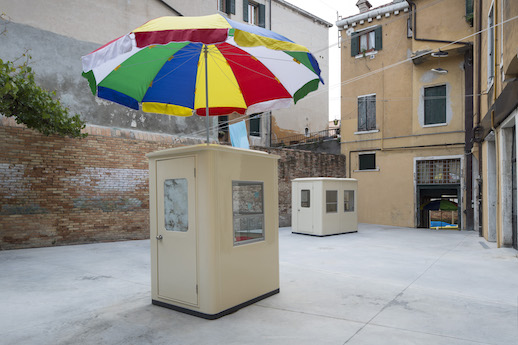Catching Up With Lee Kit

Where and how have you spent your time in the months since the pandemic?
I was in Dublin briefly during March and then I went back to Hong Kong. Due to visa issues during the pandemic, I couldn’t go (back) to Taiwan, where I have spent quite a lot of time in the past eight years. Besides, I haven’t stayed more than a month in Hong Kong for eight years. So, I took this chance to live in different areas in Hong Kong where I never lived before. I spent quite a lot of time walking in some city and rural areas that I am not quite familiar with. Apart from that, I am spending time just trying to put myself together and then forgetting what I’ve just thought about.
How have things around you changed?
Hong Kong has changed since last year, and it keeps changing quickly socially and politically in the past few months (i.e. from March to August, 2020). For example, The Hong Kong government had passed The National Anthem Law and The National Security Law in June, shortly after the protest started from the summer of 2019 to early 2020. Thousands of people were arrested and a lot of them were prosecuted…and the arrests are still going on. And then the pandemic. I mean, things changed and people changed, too. And I can see some people still live their lives in a normal way, which is rather abnormal. But most of these people are not the ones to be blamed. It’s hard to describe how all these changes make me feel. It’s surreal, frustrating, damaging, and somehow “muted.” I keep breathing and walking with the muted wall of sound in my head. Perhaps this is one of the most obvious changes I could describe clearly. Besides that, I don’t see the city as crowded as before.
How do you think the art world will or should change in the future? For example, the pandemic brought many exhibitions online. Do you think the pandemic will still have an impact on exhibition formats after it has been contained?
I think something should have changed in the art world a while ago. The pandemic is a catalyst to force us to confront prolonged hypocrisy. It is also more about what we are doing rather than what art is. I remember a lot of art people were talking about how eager they were to make a change in the art world during March and April, and now it seems that we need to go back to normal, with a bit more of a platform to show art works, and to share and communicate. For example, the online platform. It’s media, or a medium that belongs to our time. So, there is nothing wrong about it. But it’s not a means to an end. We all know that. I assume we – or I – should do things a little differently than before, not solely because of the influences and consequences brought by the pandemic. It’s more about reasoning with myself before doing anything and at the same time, keeping a certain energy and openness. It is not only about changing the format of exhibition production, collaboration, and presentation. [It’s about] respecting people.
I know a lot of good people in the art world who have been working hard for years to change and work things out for the best with critical and very open-minded attitudes. But the system is like boxes in a grid tower. I envision it would be better if this grid tower became more like a river, or a kind of flowing system. I can’t provide a concrete suggestion, so I think I am part of this hypocrisy, too.
I am not sure about whether the impact will last much longer since things are uncertain now globally and politically. Some people love to visit exhibitions to see the actual works and have the experience, just like people enjoy being in a concert. The impact won’t last forever.
With the outbreak of the new coronavirus, political and human dignity issues have emerged. Of course, the connection between the two cannot be easily defined, but how do you think about this relationship?
I see both good and bad sides of it. In a lot of countries, we see people working together and helping each other in this very difficult time. It mobilized people to act for what’s best for their society. At the same time, we see populism and racism, too, which are against humanity. Naivety and supremacy disguised as dignity. Not even to mention some governments are making use of the pandemic situation as a means to suppress and control the existing social political problems.

At the Venice Biennale, you presented a work inspired by the rain umbrella movement. The relationship between Hong Kong and China has become more strained since then, growing rapidly tenser over the past year. On June 30, the Hong Kong National Security Act was passed. Under these circumstances, what is the relationship between your attitude as an individual and your attitude as an artist?
Before executing this umbrella work in Venice back to 2013, I had this image – an umbrella “protecting” a security booth – in my mind since 2006. It was a coincidence.
Actually, I started to see no obvious differences between my attitude as an individual and as an artist before the National Security Law passed earlier this year. On one hand, I am making more conventional works like paintings. On the other hand, I also make or arrange something to happen as a work or as an exhibition. Or, “something happened,” a phrase that I like to use. My life is getting more and more banal and similar to my so-called art practice. I cook my meal sometimes and have a walk (the conventions). I also “make something happen” if I need or feel like it. I don’t really see a big difference between my individual and art practices now, at least analogically. I think most people live this way, too.
In a 2017 interview, you said, “I don’t believe in democracy anymore.” Do you still feel the same way?
I still don’t believe in democracy as the only reliable political system. However, it is a process that we have to go through to get closer to a better and fairer society. We can have endless discussions about how democracy failed and is being manipulated as a system, given that populism also makes doing so possible and prevalent. I hope I am not being silly here. When I look at what happened in Hong Kong, I simply don’t know how to formulate a strategy – just to say – to build a system out of scratch from existing systems. It has to be started somewhere. Then hopefully we can depart and go on from that.
What hope do you see for the future?
I would like to keep this question for the future. : )



